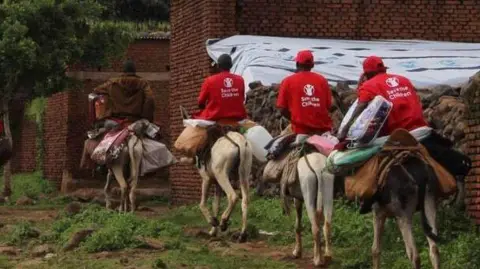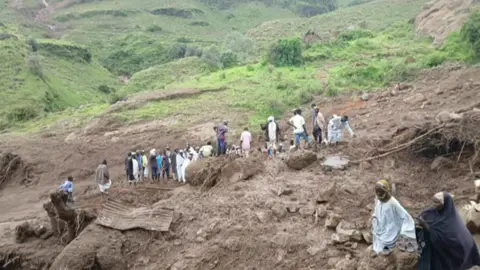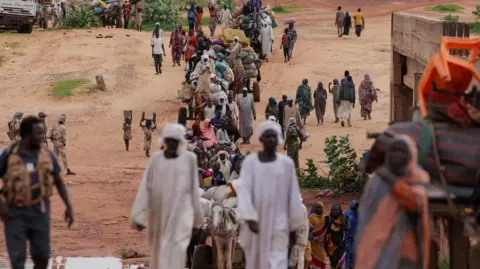At least 10 people have lost their lives following a landslide at a quarry in West Java, Indonesia, as confirmed by the country's national disaster management agency. The tragic incident took place on Friday around 10 a.m. local time, near the city of Cirebon, situated approximately 135 miles east of Jakarta, the capital. All victims were identified as quarry workers, and six additional individuals sustained injuries and are currently receiving medical treatment at nearby hospitals.
Visuals from the scene shared by news network Kompas TV depict excavators at work, searching through debris as officials endeavor to locate any survivors below the steep hillside. However, rescue efforts were suspended around 5 p.m. due to deteriorating visibility and fears of subsequent landslides, according to Mukhammad Yusron, the commanding officer of the regional military district, who spoke with Antara news agency. He mentioned that search operations are set to continue on Saturday.
Bambang Tirto Mulyono, head of West Java's department of energy and mineral resources, indicated that the landslide stemmed from improper mining techniques. The quarry operated by mining from the base of the hill upwards, rather than from the top down. The official highlighted that warnings had been issued to the mining operators in the past about adhering to better safety protocols, and the Cirebon city police had cordoned off the area since February due to ongoing safety violations.
Indonesia's susceptibility to landslides is compounded during seasonal rains from October to April. This recent incident follows a tragic pattern; just last month, 10 people died when a landslide affected vehicles on Java, with 25 fatalities reported in another landslide incident in January.
The country, composed of over 17,500 islands and home to more than 280 million people, has seen substantial deforestation over the past fifty years, converting rainforests into palm plantations and agricultural land, which compromises soil stability. Illegal small-scale gold mining has also exacerbated these unstable conditions, evidenced by a November landslide that resulted in 24 deaths at an unauthorized mining site on Sulawesi island.
The Indonesian government is now faced with an urgent call to revisit mining regulations and safety standards to prevent future tragedies in this resource-rich yet environmentally vulnerable nation.




















